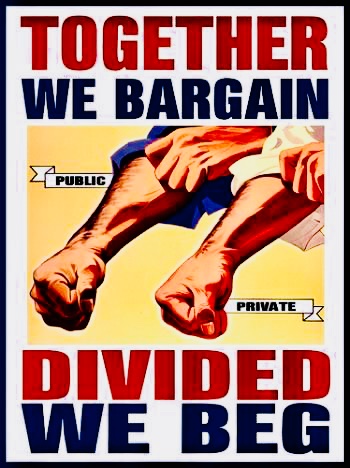Why Join a Labor Union?
A club for employees? Or an organization of activists? What exactly does a labor union do for you?

January 16, 2018
You might know someone that is in a labor union, and one day you might even join one. But what exactly is this “club” that has 16 million participants in the United States alone?
The concept of labor unions began in 1886, and has grown steadily ever since. A labor union is an organization of employees with similar workplace goals, such as fair treatment and proper wages. Labor unions protect the rights of employees, so that employers may not work employees for more than eight hours without compensation for overtime. Common union jobs include teachers, police officers, Government employees, factory workers, and construction workers.
Labor unions have come under the microscope in recent years for their tendency to be directed more towards the group and away from the individual in the workplace, however there are many benefits of joining a labor union, both individual and economically.
Labor unions are specialized to protect the interest of employees, and not a corporate brand or company numbers. Unions protect employees against inequality in the workplace, and discrimination against religion, race, age, gender, sexual orientation, and certain medical ailments. Labor unions work to reduce the income gap between genders, and ensure fair compensation and workplace safety for workers. Since the union and not the employer has disciplinary authority such as termination, this leads to more job security than one would have without the protection of a labor union. Employees within a labor union also receive an increase of fringe benefits. All of these factors directed toward the individual employee makes for a more stable work environment, which in turn affects all of the employees, creating a productive and pleasant atmosphere among employees and employers alike.
As the gap between the top earners and middle class grows, labor unions have helped ease that gap. Labor unions helped create paid healthcare and pensions for middle class workers, and have raised the wages of union workers. A 2010 study done by the U.S. Bureau of Labor Statistics concluded that unionized employees earn an additional 800 dollars more month than non-unionized employees. That is 9,600 more per year that is added onto the salary of the union worker. That is a major benefit for the individual employee, but raised salaries for individuals also helps the American economy. Increased unionization boosts America’s annual wages, which in turn creates more spending within the American economy, which continues to keep putting back more money into our economy and into chains and businesses alike, which serves to benefit the many industries in the United States.
Labor unions are a beneficial development that only grow more appealing and useful as our economy plunges deeper into debt and the gap between the high earners and middle class grows. Labor unions positively affect both economic circles and social circles. Labor unions are not a necessity, but they do benefit the individual as well as the economy; the American worker as well as the American consumer.





































